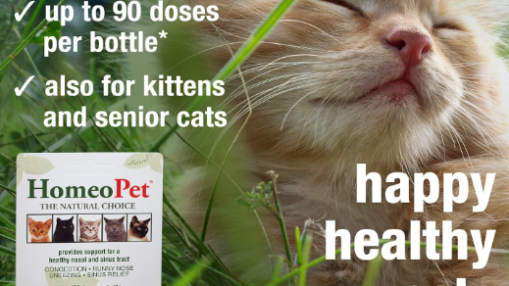Fleas are one of the most common pests that plague cats, causing discomfort and potential health risks. Fleas can transmit diseases, cause allergic reactions, and lead to skin irritations.
Table of Contents
Many cat owners seek ways to protect their pets from these parasitic pests, and traditionally, chemical flea treatments have been the go-to option. However, chemical treatments often contain harsh ingredients that may irritate sensitive skin or even cause adverse health effects over time.
As a result, many pet owners are turning toward natural remedies to manage flea infestations. Among the most popular natural solutions are essential and carrier oils. These oils are derived from plants and can offer relief without the side effects associated with synthetic treatments. The use of oils for flea control has grown in popularity due to their accessibility, effectiveness, and holistic benefits. While not a one-size-fits-all solution, oils can be a valuable addition to a cat’s flea management plan when used correctly.
Importance of Flea Control for Cats

Fleas can cause a host of issues for cats, ranging from mild irritation to severe health problems. Flea bites can lead to itching, discomfort, and in some cases, allergic dermatitis—a condition where cats develop an allergic reaction to flea saliva. In more severe cases, flea infestations can lead to anemia in cats, especially in kittens or older cats with weakened immune systems.
Beyond the immediate effects, fleas can also act as vectors for other parasites such as tapeworms. When cats ingest fleas during grooming, they are at risk of developing tapeworms, which can cause gastrointestinal issues. Therefore, controlling fleas is essential not only for the comfort of your cat but also for their overall health and well-being.
Why Natural Remedies Like Oils?
Natural remedies, particularly essential and carrier oils, are favored by many cat owners due to their plant-based origins and fewer side effects compared to chemical treatments. Oils provide a non-toxic alternative that can repel or kill fleas while offering additional health benefits like soothing irritated skin. Moreover, oils can often be used preventatively, reducing the chances of fleas making a home on your cat in the first place. While natural remedies require consistent application and monitoring, they offer a safe, eco-friendly option for flea control.
2. Essential Oils for Fleas on Cats
Essential oils are potent plant extracts known for their therapeutic and medicinal properties. Several essential oils have insecticidal properties, making them effective in repelling or killing fleas. However, because cats have sensitive skin and are more prone to allergic reactions, it’s critical to choose the right essential oils and use them in the correct dosage.
Lavender Oil
Lavender oil is one of the most popular essential oils used for flea control due to its soothing scent and insecticidal properties. Lavender is known for its calming effects, which not only benefit your cat but can also help repel fleas. The oil contains compounds that disrupt the life cycle of fleas by preventing eggs from hatching. Additionally, lavender oil is gentle on a cat’s skin when appropriately diluted, reducing the risk of skin irritation.
When using lavender oil, always dilute it with a carrier oil before application. A common dilution ratio is one drop of lavender oil to one tablespoon of carrier oil. Apply it to the cat’s fur, focusing on areas where fleas tend to gather, such as the neck, back, and base of the tail. Regular application can help keep fleas at bay while leaving your cat smelling fresh.
Cedarwood Oil
Cedarwood oil is another effective essential oil for flea control. It has been used for centuries to repel various insects, including fleas. Cedarwood oil disrupts flea pheromones, making it difficult for fleas to find hosts, reproduce, and survive. It is safe for cats when used in moderation and diluted with a carrier oil.
Cedarwood oil can be applied directly to your cat’s fur, ensuring it is not ingested or applied too heavily. Regular use can help create an inhospitable environment for fleas. Some cat owners also use cedarwood oil in a spray form, mixing a few drops with water and spritzing it lightly on their cat’s bedding to prevent flea infestations.
Lemongrass Oil
Lemongrass oil is a potent natural insect repellent, known for its ability to ward off fleas. It contains citronella, a compound widely recognized for its insect-repelling properties. While lemongrass oil has a fresh, citrusy scent that can uplift your cat’s surroundings, its potency requires caution. It is important to dilute lemongrass oil properly before applying it to your cat’s fur, as undiluted essential oils can cause irritation.
Lemongrass oil can be added to a spray bottle with water and misted lightly on your cat’s fur and environment. While it serves as a great preventative measure against fleas, it should never be ingested by your cat, as citrus oils can be toxic when consumed.
Peppermint Oil
Peppermint oil is an effective natural remedy for fleas, offering both a cooling effect and insecticidal properties. The strong scent of peppermint is not only refreshing but also helps repel fleas from your cat’s fur. However, peppermint oil must be used cautiously with cats, as their skin is more sensitive to the high concentration of menthol in the oil.
Before using peppermint oil, dilute it with a carrier oil to reduce the risk of skin irritation. A few drops of diluted peppermint oil can be massaged into your cat’s coat to prevent fleas. It can also be added to water and sprayed onto surfaces in your home to create a flea-repellent environment. However, never apply the oil near your cat’s face, as the strong scent can irritate their eyes and respiratory system.
Eucalyptus Oil
Eucalyptus oil is another effective essential oil for flea control, thanks to its strong antiseptic and insecticidal properties. Fleas tend to avoid eucalyptus due to its potent scent, making it an excellent natural flea repellent. However, eucalyptus oil must be used with caution around cats as it can be toxic if ingested in large amounts.
To use eucalyptus oil safely, dilute it well with a carrier oil and apply it sparingly to your cat’s fur. Avoid applying it to areas your cat can easily lick. You can also use eucalyptus oil in your home by adding a few drops to your cat’s bedding or furniture, as it can help deter fleas from settling in those areas.
3. Carrier Oils for Safe Application
Essential oils must always be diluted with a carrier oil to prevent irritation, as they are too potent to apply directly to a cat’s skin. Carrier oils act as a base that allows the essential oils to be distributed evenly and safely over the cat’s coat.
Coconut Oil
Coconut oil is one of the most popular carrier oils used in conjunction with essential oils for flea control. It is non-toxic and has its own anti-parasitic properties, which can help in killing fleas. When applied to a cat’s coat, coconut oil forms a layer that suffocates fleas, and it also helps moisturize and soothe the skin. Coconut oil has a pleasant smell and is safe if a cat licks a small amount off its fur, although excessive ingestion should be avoided.
Olive Oil
Olive oil is another safe and commonly used carrier oil. It’s readily available and has moisturizing properties that are beneficial for a cat’s skin and coat. Olive oil can be used to dilute essential oils and applied to areas of your cat’s body where fleas are common. It also helps in removing flea dirt and dead skin, keeping your cat’s fur clean.
Sweet Almond Oil
Sweet almond oil is known for being gentle on the skin, making it an ideal carrier oil for use with essential oils. It’s lightweight and easily absorbed, so it won’t leave your cat’s fur greasy. Like other carrier oils, sweet almond oil also has nourishing properties that can improve your cat’s coat health while helping distribute essential oils evenly across the skin.
4. How to Safely Use Oils on Cats
While essential oils can be effective for flea control, safety is paramount when using them on cats. Cats have unique metabolisms, and some oils can be harmful if not applied properly.
Dilution of Essential Oils
Before using any essential oil on your cat, it’s crucial to dilute it with a carrier oil. Essential oils are highly concentrated and can cause irritation or toxicity if used undiluted. A common dilution ratio is one drop of essential oil to one tablespoon of carrier oil. This ensures the essential oil is not too potent for your cat’s sensitive skin and minimizes the risk of adverse reactions.
Proper Application Techniques
When applying oils to your cat, it’s best to avoid areas where they can easily lick or ingest the oil, such as the face, paws, and underbelly. Instead, apply the diluted oil along the back of your cat’s neck or on the back, where they are less likely to reach. Always use your hands to massage the oil into the fur and skin gently, ensuring it is evenly distributed.
Spot Testing for Allergies
Before applying any oil to your cat, it’s important to perform a spot test. Apply a small amount of the diluted oil on a less sensitive area of your cat’s body and observe for any adverse reactions, such as redness, swelling, or excessive scratching. If your cat shows any signs of discomfort or irritation, discontinue use immediately and consult a veterinarian.
5. Benefits of Using Oils Over Chemical Flea Treatments
Oils offer several advantages over traditional chemical flea treatments, especially for cat owners seeking natural and non-toxic alternatives.
Natural and Non-Toxic
One of the primary reasons pet owners choose oils for flea control is their natural and non-toxic nature. Unlike chemical flea treatments, which often contain synthetic pesticides, oils are plant-based and free from harsh chemicals that can be harmful to both cats and their owners. Essential oils, when used properly, provide a safe and effective way to repel or kill fleas without exposing your pet to toxic substances.
Cost-Effective Solutions
Many essential and carrier oils are affordable and widely available, making them a cost-effective solution for flea control. A small bottle of essential oil can last for months, as only a few drops are needed per application. This makes oils a budget-friendly option for pet owners who want to manage fleas without the recurring expense of chemical treatments.
Other Health Benefits for Cats
In addition to their flea-repelling properties, many essential oils offer additional health benefits for cats. For example, lavender oil has calming effects, which can help reduce stress and anxiety in cats. Coconut oil moisturizes the skin and coat, promoting a healthy, shiny appearance. Using oils can improve your cat’s overall well-being while also keeping fleas at bay.
6. Potential Risks and Precautions
While essential oils can be highly effective for flea control, there are some risks involved if they are not used properly. It’s important to understand these risks and take the necessary precautions to ensure your cat’s safety.
Toxicity of Certain Oils
Not all essential oils are safe for cats. Some oils, such as tea tree oil, clove oil, and citrus oils, are toxic to cats and should be avoided entirely. Cats are more sensitive to essential oils than other animals, and exposure to toxic oils can lead to serious health issues, including respiratory distress, liver damage, or even death. Always research the safety of an oil before using it on your cat.
Signs of Allergic Reactions
Even safe oils can cause allergic reactions in some cats. Signs of an allergic reaction include excessive scratching, redness or swelling at the application site, sneezing, coughing, or vomiting. If your cat shows any of these symptoms after being exposed to essential oils, discontinue use immediately and consult your veterinarian for further advice.
Consulting a Veterinarian Before Use
Before incorporating essential oils into your cat’s flea control regimen, it’s essential to consult with a veterinarian. A vet can provide guidance on which oils are safe for your cat and how to use them properly. This is especially important if your cat has underlying health conditions or is currently taking medication.
Step 3: Q&A
Q: Can I use essential oils directly on my cat without diluting them?
A: No, essential oils should always be diluted with a carrier oil before application. Using undiluted essential oils can cause irritation or toxicity in cats.
Q: How often should I apply essential oils to my cat for flea control?
A: The frequency of application depends on the severity of the flea problem. Typically, applying the diluted oils once a week is sufficient for preventing fleas. In cases of active infestation, more frequent application may be necessary, but consult your vet for advice.
Q: Are there any essential oils I should avoid using on my cat?
A: Yes, some essential oils, such as tea tree oil, clove oil, and citrus oils, are toxic to cats and should never be used. Always research an oil’s safety or consult with a vet before use.
Conclusion
Using oils for flea control on cats offers a natural, effective, and non-toxic alternative to chemical treatments. Essential oils like lavender, cedarwood, and lemongrass, when properly diluted with carrier oils, can help repel fleas while promoting overall health. However, safety precautions must always be taken, including proper dilution and consulting a veterinarian. By incorporating oils into your cat’s flea management routine, you can protect your feline friend from fleas while ensuring their comfort and well-being.







Pingback: Cat Calming Blanket - kittypety